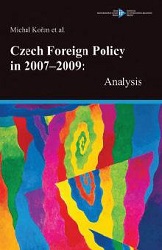The Middle East, the Mediterranean and Afghanistan in the Czech Foreign Policy
The Middle East, the Mediterranean and Afghanistan in the Czech Foreign Policy
Author(s): Jaroslav Bureš
Subject(s): Political history, Economic policy, Environmental and Energy policy, Government/Political systems, International relations/trade, Security and defense, Political behavior, Politics and religion, Comparative politics, Transformation Period (1990 - 2010), EU-Approach / EU-Accession / EU-Development, Peace and Conflict Studies
Published by: Ústav mezinárodních vztahů
Keywords: Czech Republic; Foreign policy; Middle East; Afghanistan; Palestinian Question;
Summary/Abstract: The Mediterranean and the Middle East, although they did not fall under the priorities of Czech foreign policy after 1989, had to be taken into account by the Czech Republic after it joined NATO and the EU due to the wider interest of the trans-Atlantic allies in regional stability and security. For this reason, issues like terrorism, immigration, the Middle East peace process, proliferation of weapons of mass destruction, peacekeeping missions, and the Euro-Mediterranean cooperation were among the most frequently discussed topics in the Czech political scene during the 2000s. The Middle East agenda have affected our relations with allies and they have been the subject of home competition on left-right axis. The only long-term Czech interest relating to the region was the mainly rightist government’s attempt to reduce the Czech Republic’s one-sided dependence on imports of Russian oil and gas, which was demonstrated by the support for the Nabucco pipeline project during the Czech EU presidency.
Book: Czech Foreign Policy in 2007–2009: Analysis
- Page Range: 246-274
- Page Count: 29
- Publication Year: 2010
- Language: English
- Content File-PDF

